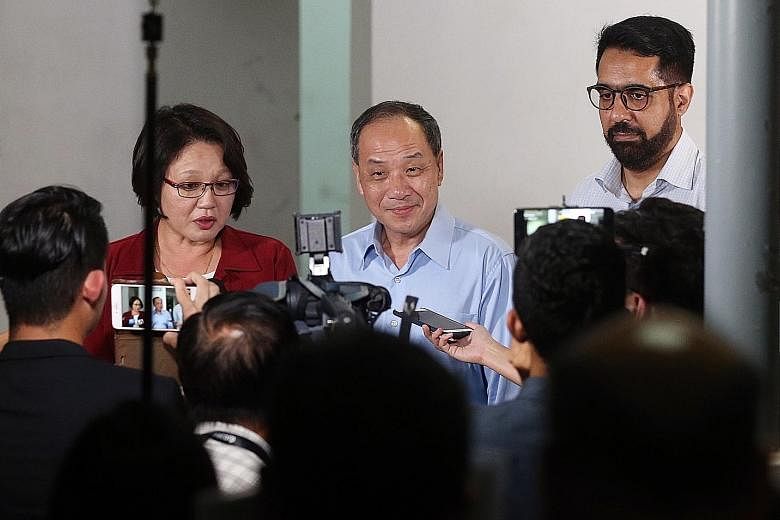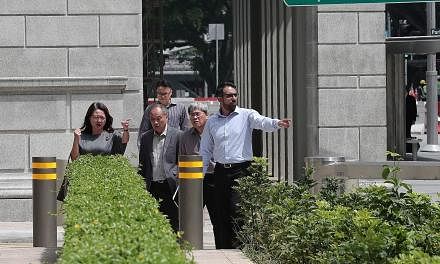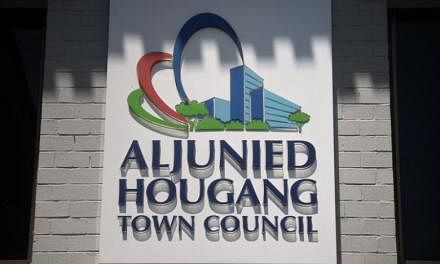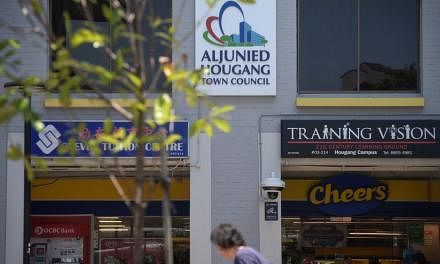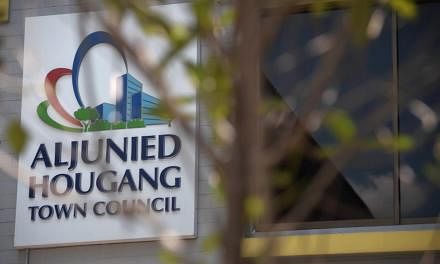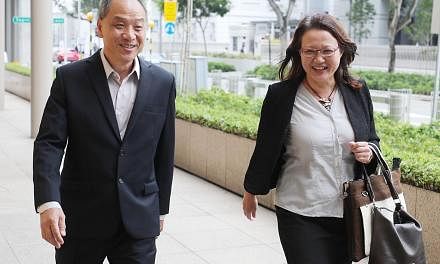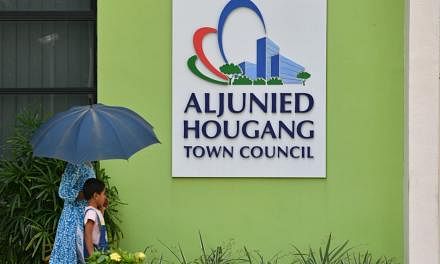After news of the Aljunied- Hougang Town Council (AHTC) lawsuit broke, netizens drew comparisons between financial woes there and two recent governance issues in the headlines.
These were governance lapses at government agencies flagged by the Auditor-General's Office (AGO), and the corruption probe into the former general manager of Ang Mo Kio Town Council (AMKTC).
AHTC, on the directions of an independent panel, is taking some of its most senior town councillors - including Workers' Party (WP) chief Low Thia Khiang and party chair Sylvia Lim - to court to recover allegedly improper payments.
But observers note that these three issues are different in several ways, chief among them the scale and the systemic nature of the issues facing AHTC.
For one thing, AHTC has been unable to submit an unqualified set of accounts since it was formed after the WP won Aljunied GRC in 2011. This issue continued when it was reconstituted as AHPETC after the WP won Punggol East in a 2013 by-election.
Concerns over the council's finances led to Deputy Prime Minister and Finance Minister Tharman Shanmugaratnam directing the AGO to do a special audit of the town council's FY2012/2013 accounts. After its report was published in February 2015, audit firm KPMG was directed to conduct a thorough audit as well.
In October last year, KPMG found that over $33 million in payments to the council's former managing agent FM Solutions and Services (FMSS) and service provider FM Solutions and Integrated Services, were co-signed by persons with conflict of interest or FMSS employees.

In one of its audit reports, KPMG concluded that these failures were pervasive, and "there is an issue larger than the sum of individual lapses at AHTC".
In Parliament last year, Senior Minister of State for Finance and Law Indranee Rajah said AHTC's problems were "of a systemic nature", but there has been no such systemic problem in Government.
She was replying to a question from MP Liang Eng Hwa on how the AHTC governance issues differed from those flagged by the AGO in its annual audit of government agencies.
Ms Indranee also noted there was no question of personal gains or conflicts of interest in any of the lapses highlighted by the AGO, and the ministries and agencies have taken steps to rectify the weaknesses identified.
Earlier this month, the AGO released its latest report in which it rapped several agencies for lapses in controls over information technology systems, lack of financial controls and inadequate oversight over large-scale development projects.
The Ministry of Finance said in response that the public sector's system of managing public funds remains sound, and committed to take steps to fix the lapses.
Similarly, the ongoing Corrupt Practices Investigation Bureau (CPIB) probe into AMKTC's former general manager is an isolated incident. CPIB started investigating the council's former general manager and secretary, Mr Victor Wong, for alleged corruption last year.
Mr Wong, an employee of AMKTC's managing agent CPG Facilities Management, was removed from his positions at AMKTC in November last year.
When contacted last week, CPIB said it was still "looking into the matter". That being said, a CPIB investigation is criminal in nature, whereas the lawsuit that has been filed against AHTC is a civil matter.
But Associate Professor Lawrence Loh, head of the Centre for Governance, Institutions and Organisations at the National University of Singapore's Business School, pointed out that the fact that the independent panel had taken a "legal approach" strengthened the credibility of the process.
"The bottom line is to push for good governance and it is necessary that the approach to push this adds to the practice of good governance," he said.
